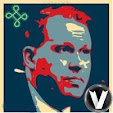 "The West must be bolder in its response to a newly assertive Russia." This is the proposition made for the upcoming The Economist debate series, setting off on 9 September. The opposite argument holds that this position erroneous by Western misperceptions of Russia, based on renewed reminiscences of an increasingly distant Cold War era.
"The West must be bolder in its response to a newly assertive Russia." This is the proposition made for the upcoming The Economist debate series, setting off on 9 September. The opposite argument holds that this position erroneous by Western misperceptions of Russia, based on renewed reminiscences of an increasingly distant Cold War era.Speaking for the pro side is Anne-Marie Slaughter, Dean of the Princeton University Woodrow Wilson School of Public and International Affairs. Representing the con argument is Dmitri V. Trenin, Senior Associate at the Carnegie Endowment Moscow Centre.
Thus, Slaughter initiates the debate by the following argument:
The West should be bolder in confronting a newly assertive Russia, but bolder in a way that understands and manipulates the realities of 21st-century politics rather than plunging us back into a 20th-century stalemate.
In his rebuttal, Trenin starts out opposing this statement accordingly:
Those who argue that the West should be bolder in its response to a newly assertive Russia are trying to use their memories of the past to deal with a very different present and a highly uncertain future.
The debate will span over the period 9-19 September with rebuttals on the 12th and closing arguments on the 17th. The winner will be announced on the 19th, and topics covered be open for discussion and comments until 26 September.
Registered users will be able to vote surrepetisiously for either alternative during the ten day debate. Following the Oxonian tradition, "members of the House will be thus allowed to "cross the floor" by such vote if arguments are convinving enough to turn their opinion. Questions to the contrahents may be sent in via the Chairman, viz. moderator, who will act as arbiter in selecting those of relevance for further dissection in debate.
The Economist presents the following background for the debate:
Russia’s incursion into neighboring Georgia has Western governments worried about renewed Russian assertiveness. The diplomatic frost between America and Russia remains at a level not seen since the cold war, leading to predictable results: Russian/NATO joint military exercises cancelled, private energy co-operation agreements withdrawn, foreign ministers returned home. Is Russia’s intention to upset the current international order, or is it responding directly to the widening sphere of American influence in former Soviet countries (for example, the promise of eventual NATO membership for Ukraine and Georgia)? Can the European Union speak with one voice and take the diplomatic lead? Or must America protect the world order by standing up to Russia to prove that any form of aggression comes at a cost? Finally, are we witnessing the dawn of a second cold war, in which the West should resist the lure of appeasement?
So, are we in for a heated debate, as East and West seem juxtaposed in a renewed wrestle for right and wrong, power and glory, or simply for the petty interests of their own pockets in a fight for survival spanning ever greater tracts of the world?
That is certainly one purpose of debate, in attracting interest to a sensitive and precarious situation in world affairs. Still, choosing a softy like dear Dmitri to stand for the Russian side and not a heavy-hitter better representative of currrent moods in Moscow may not be the best approach in the pursuit of any profounder realities. Still, it warrants for an interesting and nuanced debate of a character not widely found in these days. I for one will certainly follow






1 comment:
There was this report also in the media coming out of a British Think tank. (No sure if it is the same source of the famous WMD assessment of Iraq)
Russian armour in South Ossetia: who started the war? (Caution: It is a BBC report)
In a potentially significant swing of expert Western opinion, a leading British think tank has urged that NATO membership should not be granted to Georgia or Ukraine
"The policy of NATO" enlargement now would be a strategic error," said Dr John Chipman, Director General of the International Institute for Strategic Studies (IISS).
"There is no case for accelerating membership for Georgia and Ukraine. There is a strong case for a pause," he said in remarks introducing the IISS's annual review of world affairs, the Strategic Survey.
The IISS intervention shows that following the war in Georgia, a debate is growing about whether a confrontational approach to Russia is the best one.
The IISS is critical of Georgia's actions during the conflict
The IISS is highly critical of Georgian actions - in contrast to the support Georgia has received from the US and some European countries, notably Britain. Naturally, if Georgia is faulted, then less blame can be put on Russia, whatever its reaction or, as some hold, its over-reaction.
Dr Chipman said that the "balance of evidence suggests that Georgia started this war".
My Swedish is a little rusty and not that good. Are you able to summarize the findings of the FOI report?
Tak..
Post a Comment